DNVN - According to the Vietnam Beer - Alcohol - Beverage Association (VBA), in the past two weeks, VBA has received a lot of feedback and exchanges from the beverage business community about some contents that are also the biggest concerns regarding the Draft Law on Special Consumption Tax (amended).
Many consequences if tax increase
Commenting on the Draft Law on Special Consumption Tax (amended) drafted by the Ministry of Finance, the Vietnam Beer - Alcohol and Beverage Association (VBA) said that the World Health Organization (WHO) recommends increasing the selling price of alcohol and beer by at least 10%, thereby increasing the tax rate on alcohol and beer by 80% in 2026 and increasing to 100% by 2030. WHO gives general recommendations for countries with different development rates and is not specific to Vietnam.
Proposals must be based on and evaluated correctly according to the current situation in Vietnam, feasibility studies for implementation, WHO recommendations are for reference only. Proposals to increase taxes in this important policy need to have practical studies and a feasible roadmap.
Stating the difficulties of the beer and alcohol industry, VBA said that in recent years, the beer industry nationwide has seen a sharp decline in output, revenue, especially profits, and some factories have had to close.
Giving specific evidence, VBA shared that HEINEKEN Vietnam, for the first time in decades, saw its market in Vietnam witness a double-digit decline in 2023.
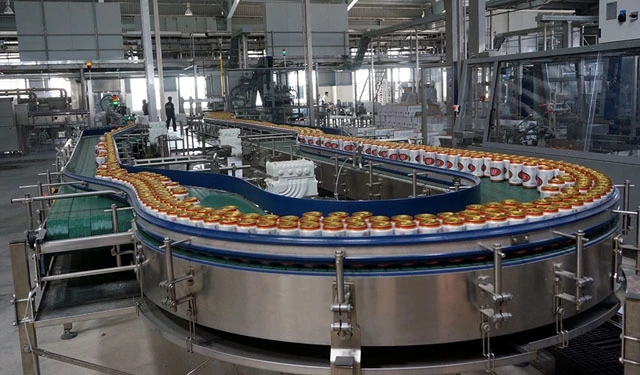
SABECO has 26 factories in 20 provinces and cities. From 2021 to now, the company's growth has been negative compared to 2019 in terms of output, revenue, and profit from one to two digits. The processing factories in the system are exhausted because input prices have increased by 20-40%, while selling prices cannot increase.
HABECO reported that in 2023, its consumption output decreased by about 30% compared to 2019, its budget decreased by 10% and it had to cut 25% of its workforce. HALICO has been continuously losing money for many years, so by the end of 2023, HALICO recorded its 27th consecutive quarterly loss, accumulating up to 457.7 billion VND.
According to VBA's analysis, when tax increases make product prices rise, consumers will tend to switch to other cheaper products, consuming floating products, poor quality, smuggled goods, counterfeit goods... Increasing taxes will reduce the competitiveness of domestic products.
International experience shows that high tax increases will create a large gap in benefits between legitimate and illegal products, increasing the risk of contraband goods, posing many risks to consumers' health, and generating costs for market management agencies and customs to combat contraband goods.
According to a survey in some localities, the situation of private enterprises producing beer products that imitate major brands and selling them on the market at very cheap prices, almost equal to the production cost without tax. The estimated output of these fake beer products is about 200-300 million liters.
The Association hopes that the Drafting Committee will refer to more international experiences, especially lessons from neighboring countries with similar conditions to Vietnam such as China and Thailand.
In addition to the solution of increasing taxes, it is necessary to study and implement solutions, strictly enforce against smuggled goods, counterfeit goods, poor quality goods, goods of unknown origin to protect legal businesses, prevent budget losses and protect consumer health. The total financial loss from the informal sector is about 2,816 million USD. Of which, the financial loss from production is 751 million USD, from smuggling activities and production of counterfeit goods is about 2,015 million USD.
For the beverage sector, imposing excise tax on sugary drinks is not feasible in achieving the goal of reducing the rate of overweight and obesity because obesity is a complex disease caused by many factors including excess energy intake and lack of physical activity. The use of sugary drinks is not the main and only cause.
Imposing excise taxes on sugary soft drinks is ineffective in influencing consumer behavior due to the substitution effect when consumers can consume other foods and beverages that have higher sugar and calorie content than soft drinks such as milk and cakes.
The imposition of special consumption tax on sugary soft drinks has a major impact on the directly affected subjects, which are the soft drink industry and related supporting industries such as sugar cane, packaging, retail and logistics in Vietnam, especially affecting small and medium enterprises.
Need to extend tax increase roadmap
Due to the importance of this policy to the beer-alcohol-beverage industry, the Association proposes that the Minister and the Drafting Committee consider the effective date of the Law on Special Consumption Tax (amended) from 2027.
For alcohol and beer products, consider reducing the tax increase and reasonably extending the increase schedule to avoid causing "shock", stabilize the market, and create conditions for businesses to adapt to tax increases in the coming time.
For beer, from January 1, 2027 to December 31, 2028, the special consumption tax will be applied at 70%; from January 1, 2029 to December 31, 2030, it will increase to 75%; from January 1, 2031, it will be 80%.
For alcohol with an alcohol content of 20 degrees or more, from January 1, 2027 to December 31, 2028: tax rate is 70%; from January 1, 2029 to December 31, 2030: 75%; from January 1, 2031: 80%.
For alcohol under 20 degrees, from January 1, 2027 to December 31, 2028: 40%; from January 1, 2029 to December 31, 2030: 45%; from January 1, 2031: 50%.
In addition to the general proposal above, HEINEKEN Vietnam proposed considering different tax rates for beer under 5.5 degrees; from 5.5 degrees to 15 degrees and above 15 degrees in accordance with the spirit of the Law on Prevention and Control of Harmful Effects of Alcohol and Beer.
In addition, VBA recommends considering removing point l, clause 1, Article 2 of the draft Law, accordingly not adding soft drinks according to Vietnamese Standards (TCVN) with sugar content above 5g/100ml, to the subjects subject to special consumption tax.
Thu An
Source: https://doanhnghiepvn.vn/kinh-te/chinh-sach/doanh-nghiep-do-uong-kien-nghi-gian-lo-trinh-tang-thue-tieu-thu-dac-biet/20240702021447705


![[Photo] General Secretary To Lam begins official visit to Russia and attends the 80th Anniversary of Victory over Fascism](https://vphoto.vietnam.vn/thumb/1200x675/vietnam/resource/IMAGE/2025/5/8/5d2566d7f67d4a1e9b88bc677831ec9d)
![[Photo] General Secretary concludes visit to Azerbaijan, departs for visit to Russian Federation](https://vphoto.vietnam.vn/thumb/1200x675/vietnam/resource/IMAGE/2025/5/8/7a135ad280314b66917ad278ce0e26fa)
![[Photo] President Luong Cuong presents the decision to appoint Deputy Head of the Office of the President](https://vphoto.vietnam.vn/thumb/1200x675/vietnam/resource/IMAGE/2025/5/8/501f8ee192f3476ab9f7579c57b423ad)
![[Photo] National Assembly Chairman Tran Thanh Man chairs the meeting of the Subcommittee on Documents of the First National Assembly Party Congress](https://vphoto.vietnam.vn/thumb/1200x675/vietnam/resource/IMAGE/2025/5/8/72b19a73d94a4affab411fd8c87f4f8d)
![[Photo] Prime Minister Pham Minh Chinh meets with the Policy Advisory Council on Private Economic Development](https://vphoto.vietnam.vn/thumb/1200x675/vietnam/resource/IMAGE/2025/5/8/387da60b85cc489ab2aed8442fc3b14a)

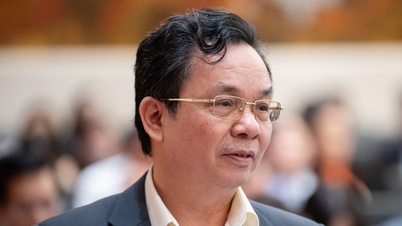

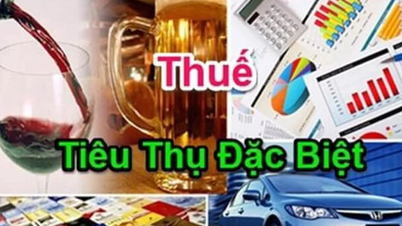



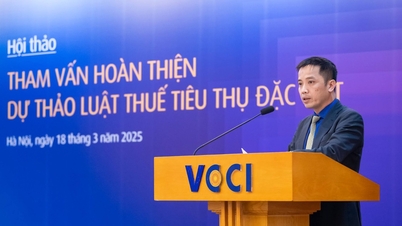
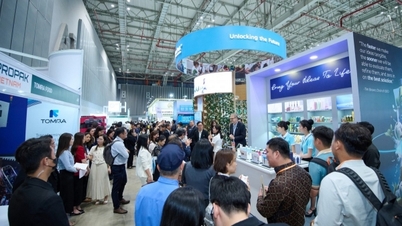




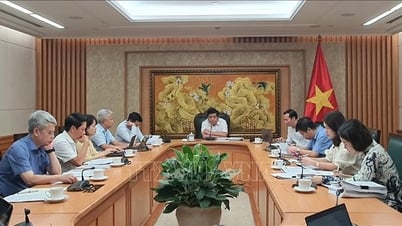

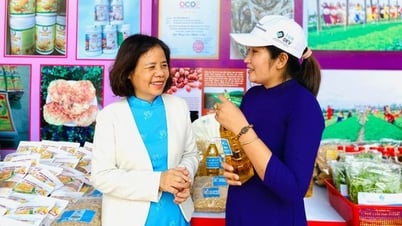









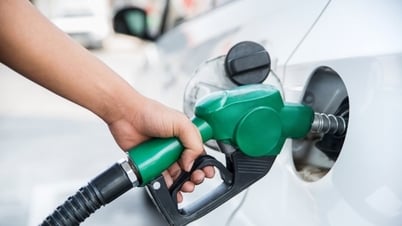
































![[Photo] Prime Minister Pham Minh Chinh talks on the phone with Singaporean Prime Minister Lawrence Wong](https://vphoto.vietnam.vn/thumb/402x226/vietnam/resource/IMAGE/2025/5/8/e2eab082d9bc4fc4a360b28fa0ab94de)

















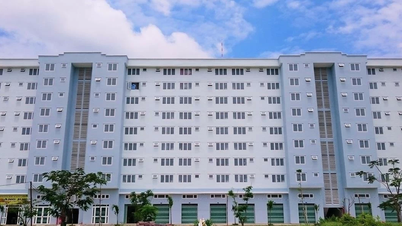












Comment (0)